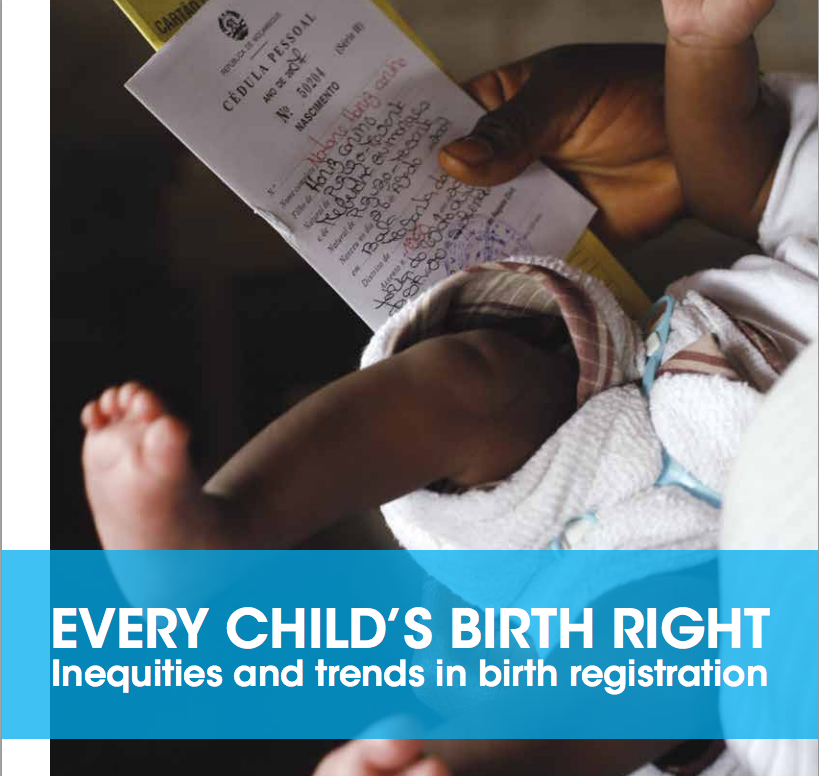All Children Need Birth Certificates But Few Have Them
 It may seem obvious that children should receive birth certificates when they are born. Here in the US, families are given all the documentation to complete for their child before they even leave the hospital. This is not the case in many other parts of the world.
It may seem obvious that children should receive birth certificates when they are born. Here in the US, families are given all the documentation to complete for their child before they even leave the hospital. This is not the case in many other parts of the world.
For starters, only a small number of children are born in hospitals. When births take place outside of formal health facilities, the odds of children obtaining a birth certificate are slim to none.
Nearly 230 million children under the age of five do not have birth certificates and are therefore unrecognized by their governments. This statistic comes from a new UNICEF report, EVERY CHILD’S BIRTH RIGHT Inequities and trends in birth registration.
Read how one community organization registered 173 Children and Families in 15 villages in Zimbabwe.
What does this mean for these children?
Children without birth certificates are:
- Often excluded from public education assistance
- Unable to access health care, including vaccinations
- Reunification can be difficult for children separated from their families as a result of natural disasters or conflicts
Most countries have systems for registering births. However, UNICEF reports, “coverage, type of information obtained, and the use of resulting data can differ, based on a country’s infrastructure, administrative capacity, availability of funds, access to the population, and technology for data management.”
Because of these variables, children can easily slip through the cracks if they are not born within a formal health facility, are located far from the Registrar’s office, or their parents are not aware of the importance of registration.
Community organizations, including many Firelight partners, tackle these barriers by working with local authorities to raise awareness on the importance of registration in order to increase access to essential services.
UNICEF found that only 38% of children are registered by their fifth birthday in Eastern and Southern Africa. There is a significant information and infrastructure gap. Community-led efforts are a critical piece to the puzzle of solving this problem.
Download the full report here: EVERY CHILD’S BIRTH RIGHT Inequities and trends in birth registration
